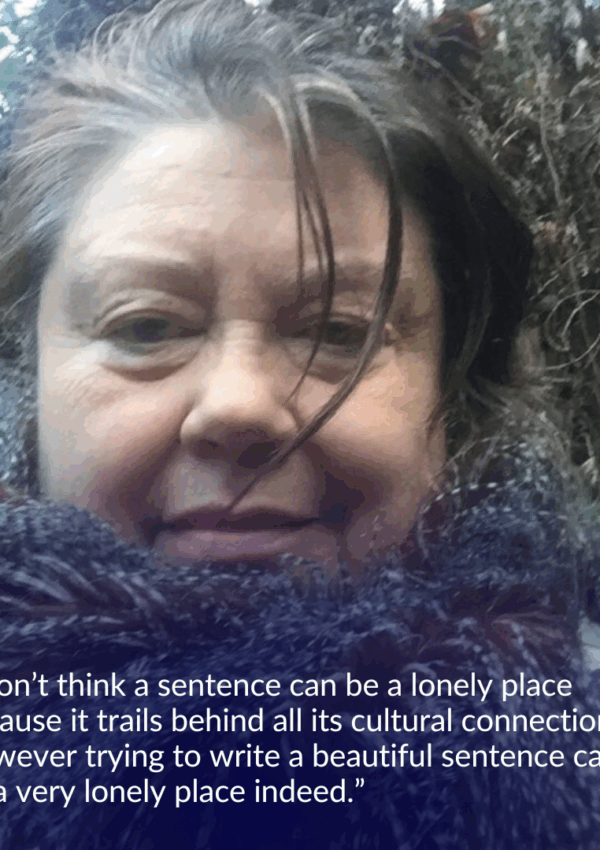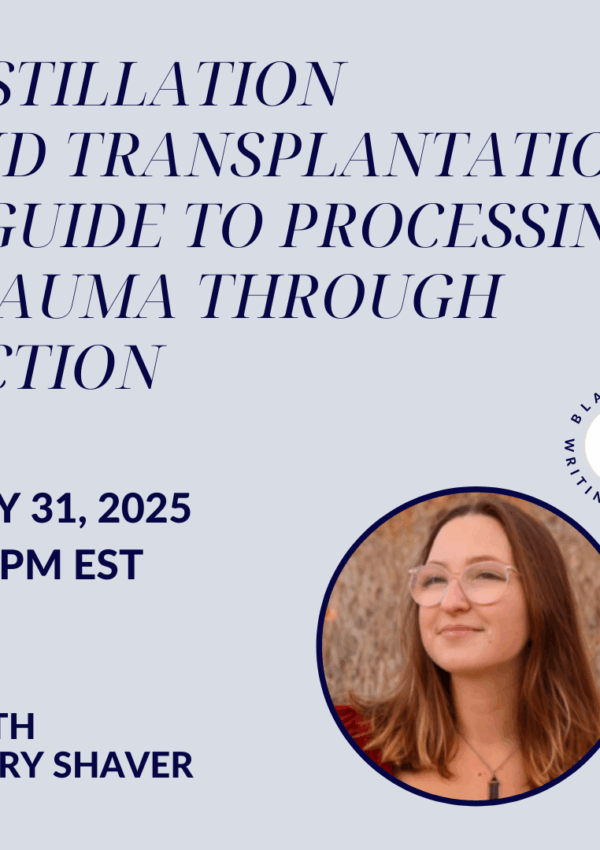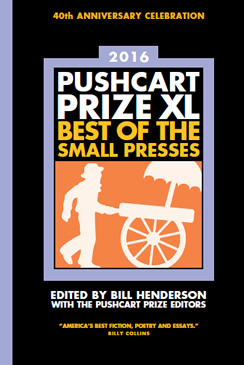Shaped by Our Childhoods
“We don’t see things as they are. We see them as we are.”
Anaïs Nin
How do the events of our childhoods affect our adult passions and mold who we become? Some believe that our childhoods set the stage for the trajectory of our lives. This has definitely been the case for me. When I was ten years old, my grandmother and primary caretaker committed suicide in my childhood home. It wasn’t brutal; it was an overdose of sleeping pills, but the most poignant aspect of the event was that my parents were at work, and I was the one who found my grandmother.
It was ten o’clock in the morning, and my friend had called to see if I wanted to swim in her pool. I cracked open my grandmother’s bedroom door to ask for permission, and she lay completely still in her bed with an open book on her chest. Lying on its side on her headboard was an empty bottle of pills. The sheer curtains on her window swayed in the fall breeze as if waving good-bye. I called her name, but she didn’t answer. With a child’s intuition, I sensed something was wrong. I ran out to call my parents at work.
Within moments, my parents, an ambulance, and the police pulled up into the driveway. Commotion took over our ordinarily quiet suburban neighborhood. My grandmother was taken away on a stretcher, never to be seen again. I did not understand the permanence of death, and my parents protected me from the experience, as they didn’t allow me to attend the funeral. Instead, my mother handed me my first journal—one with Khalil Gibran quotations across the top of each page. My journal became my best friend and confidant, and I poured my deepest sentiments into it. Little did my mother know that her seemingly benign gesture had set the platform for my life’s work as a writer.
Many children take events such as these in stride, and only looking back from the adult perspective do we realize the gravity of our earlier lived experience. It was the 1960s, long before therapy was commonplace. For hours on end, I would sit on the floor of my walk-in closet and write about how I missed my grandmother, reflecting upon all our special times together. Writing also helped me come to some level of peace about losing her. That was the beginning of my understanding that the practice of writing really does heal.
Healing Through Words
When confronted with trauma, life transitions, or epiphanies, many writers turn to writing to help them because it empowers and facilitates the healing process. D. H. Lawrence sat at his mother’s bedside while she was dying and wrote poems about her. He also started writing an early draft of Sons and Lovers, his novel in which he explored their complicated, loving, painful, and close relationship. Marcel Proust wrote Remembrance of Things Past while sick in bed with asthma. Flannery O’Connor wrote some of her best stories while dying from lupus. I wrote my first book, Getting Pregnant and Staying Pregnant: A Guide to High-Risk Pregnancies, in 1983 while on bed rest with my eldest daughter. Years later when I was dealing with breast cancer, I wrote a self-help memoir, Healing with Words: A Writer’s Cancer Journey.
May Sarton and Anaïs Nin also used journaling to pull them through difficult times. In her book Recovering, Sarton chronicles her battles with depression and cancer. Nin used her journals to help her cope with her deranged father, who left the family when she was young. In Nin’s case, her journal entries became a springboard for her life as a writer, and also a six-volume collection of her journals.
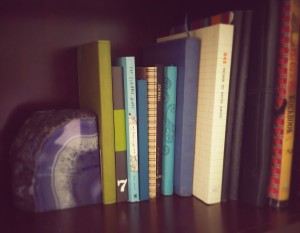 When life takes an unexpected turn, journals can become our best friends. Poet Langston Hughes once said, “When I feel bad, I write in order to keep from feeling worse.” Writing to feel better is probably the most common reason why people crack open their journals. These days, therapists sometimes suggest journaling in conjunction with talk therapy. Since my grandmother’s death, I’ve pulled out my journal during other difficult times, such as while navigating a turbulent adolescence and then three pregnancies laden with bed rest. Acknowledging the transformative powers of journaling, I once again turned to it during my two bouts with cancer.
When life takes an unexpected turn, journals can become our best friends. Poet Langston Hughes once said, “When I feel bad, I write in order to keep from feeling worse.” Writing to feel better is probably the most common reason why people crack open their journals. These days, therapists sometimes suggest journaling in conjunction with talk therapy. Since my grandmother’s death, I’ve pulled out my journal during other difficult times, such as while navigating a turbulent adolescence and then three pregnancies laden with bed rest. Acknowledging the transformative powers of journaling, I once again turned to it during my two bouts with cancer.
Indeed, the challenges surrounding illness can become a catalyst for writing. When I was in graduate school, one of my writing mentors told me (while I was navigating difficult times), “When it hurts, write harder.” Writing provides an emotional release to vent about what’s going on in your life, whether it’s related to your work or personal life. Sometimes the loss of a loved one uncovers inner turmoil or unearths secrets that become revealed during the writing process. Writing about what’s on one’s mind helps clear the mind while increasing awareness about a situation or life transition. It can also provide, as my grandmother’s journal did (which I found many years after her passing), a window into our ancestors and their legacies. Sometimes journals might even turn into books, such as my first memoir, Regina’s Closet: Finding My Grandmother’s Secret Journal.
Write from Your Heart
The most important aspect about using writing to empower you is to write from your heart. In other words, dig down into your emotional truth and write like nobody is going to read what you wrote. In this way, you’ll figure out what’s important to you, what inspires you, and what irritates you. When this becomes clear to you, then you’ll be able to tap into a deeper sense of self-discovery that will lead to physical, mental, and psychological well-being and, ultimately, happiness.
The best way to start writing for healing is to find a journal and a writing utensil that resonate with you and inspire you to put pen to paper. Then, begin doing stream-of-consciousness writing, or writing continuously for 15 minutes about whatever pops into your mind. You might decide to write a letter to a deceased love one or relate a life-altering experience. Or, you might want to write about what obsesses you. For example, what do you think about all the time? Perhaps you’ll decide to write what about what you’re grateful for, or what you can do to change or transform yourself as a path to greater joy. It’s okay to start writing about one thing and have it take you someplace completely different. The beauty about journal writing is that it’s not like an essay that needs a beginning, middle, and end. The idea is to just let it rip and get the words onto the page. This, in and of itself, is a transformative and empowering experience.
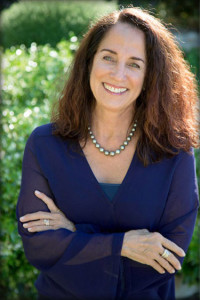
Diana Raab, Ph.D., is an award-winning author of eight books and more than 600 articles and poems. She’s a memoirist, poet, blogger, essayist and educator. She is an advocate of writing for healing and transformation. She’s been writing since the age of ten, when her mother gave her her first journal to cope with her grandmother’s suicide. Lust is her most recent poetry collection. Her nonfiction book, Writing for Bliss, is coming out in 2017.
Raab is a regular blogger for Psychology Today, The Huffington Post, and PsychAlive. Her website is dianaraab.com.

